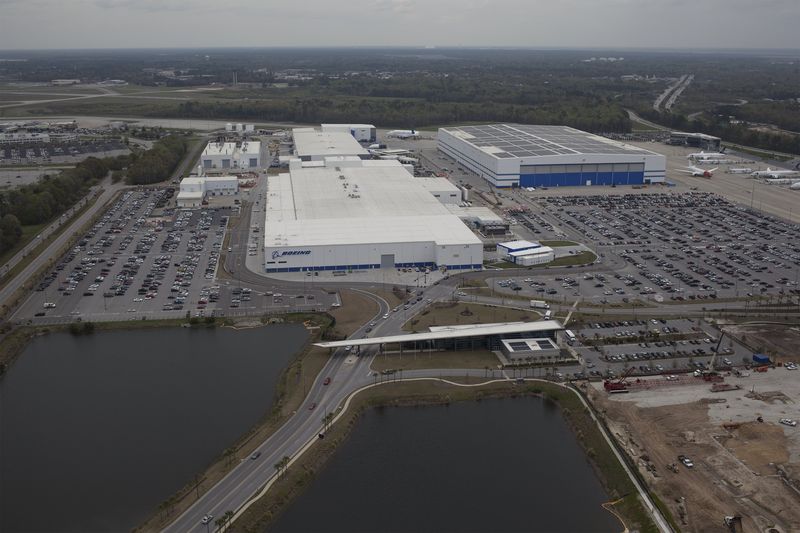David Shepardson and Allison Lampert
WASHINGTON (Reuters) – Boeing (NYSE:) Chief Executive Officer Dave Calhoun will tell a U.S. Senate committee on Tuesday that the planemaker understands concerns about its safety culture after an air emergency involving an Alaska Airlines 737 MAX 9 in January caused general anxiety.
“A lot has been said about Boeing’s culture. We heard these concerns loud and clear. Our culture is far from perfect, but we are taking action and making progress,” Calhoun will tell the Senate Permanent Subcommittee on Investigations, according to his written statement. Statement first reported by Reuters. “I’m very aware that this is an industry where we just have to get it right every time.”
Regulators and airlines have intensified scrutiny of the planemaker since a 737 MAX 9 jet blew out a door on Jan. 5. Boeing has shaken up its leadership, and Calhoun said in March he would retire by the end of the year.
“Boeing must fix its broken safety culture, and that is management’s job,” said Sen. Richard Blumenthal, a Democrat who chairs the panel holding Tuesday’s hearing. “This should have been done a long time ago.”
He noted that the MAX 8 was involved in two fatal crashes in 2018 and 2019, killing 346 people. “Boeing lost its luster and reputation for excellence because of self-inflicted wounds,” Blumenthal said.
He said the new whistleblower will come forward the day after he held a hearing with the previous whistleblower in April.
The National Transportation Safety Board said four key bolts were missing from the Alaska Airlines plane. The Justice Department has opened a criminal investigation into the January incident.
“We took immediate action at our plants and throughout our supply chain to ensure that the specific circumstances that led to this accident would not be repeated,” Calhoun said in the affidavit. “I understand the seriousness of Boeing’s role in ensuring the integrity of aerospace safety in our industry.”
Boeing is in talks to reacquire Spirit AeroSystems (NYSE:), maker of the 737 MAX fuselage.
Last week, Michael Whitaker, head of the Federal Aviation Administration, said the agency had been “too hands-off” in overseeing Boeing before the Jan. 5 crash.
Boeing submitted a comprehensive quality improvement plan to the FAA on May 30 after Whitaker gave the company 90 days in late February to develop a comprehensive plan to address “systemic quality control issues.” He prohibited the company from expanding production of the MAX.
Calhoun said the plan includes “specific metrics that we will use to ensure accountability, and the FAA will use them to provide the necessary oversight.”


